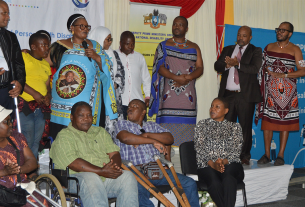BY PHESHEYA IAN KUNENE
MBABANE – Minister of Health Mduduzi Matsebula says up to date, Eswatini has not reported any confirmed cases Mpox, although most countries in African have reported the cases of the virus.
Matsebula made this statement during the 2024/25 second quarter performance debate of the Ministry of Health by members of parliament.
The Minister said despite Eswatini’s neighbouring countries being hit hard by virus, no confirmed cases of Mpox have been reported in the country while adding that as a Ministry they were on high alert and vigilantly monitoring the unfolding situation to prevent the disease. In addition, Matsebula mentioned that a couple of suspected cases were reported but it was later discovered that it was not that deadly virus which has taken the world by storm.
The virus was declared a global threat and Matsebula urged the public to continue with observing prevention measures as the country not out of the woods yet. Meanwhile, Matsebula assured the public that they were ready to deal with the deadly disease and conducting surveillance to respond to any Mpox case that may occur in the country.
“The Ministry is monitoring the situation on daily basis, we are doing all we can to prevent the disease from hitting Eswatini. We request the public to continue observing prevention measures,” Matsebula said.
Furthermore, the Minister revealed that cases of Asthma and Tuberculosis continued to dominate while also adding that the fight against another deadly disease, COVID-19 virus was far from over as 12 cases had been reported with one person reported to have died from the virus.
Mpox disease is a viral infection caused by the mpox virus. The disease is transmitted from one person to another by close contact with lesions, body fluids, respiratory droplets and contaminated materials such as bedding.
Mpox presents with fever, an extensive characteristic rash and usually swollen lymph nodes. Various animal species have been identified as susceptible to the pox virus.
Eating inadequately cooked meat and other animal products of infected animals, contact with exposed persons and travel to affected areas are possible risk factors for acquiring the infection.
A total of 17,541 cases and 517 deaths have been recorded in 13 African countries in 2024. The majority of cases have been recorded in the SADC region with the Democratic Republic of the Congo (DRC) accounting for over 90% of cases and deaths.




